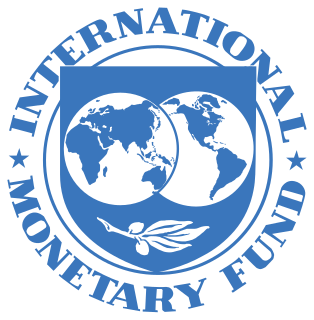Sir Paul Tucker is a British economist and central banker. He was formerly the Deputy Governor of the Bank of England, with responsibility for financial stability, and served on the Bank's Monetary Policy Committee from June 2002 until October 2013 and its interim and then full Financial Policy Committee from June 2011. In November 2012 he was turned down for the position of governor in favour of Mark Carney. In June 2013, Tucker announced that he would leave the Bank of England, and later that he would be moving to Harvard. He was knighted in the 2014 New Year Honours for services to central banking.
The BIOS Centre for the Study of Bioscience, Biomedicine, Biotechnology and Society is an international centre for research and policy on social aspects of the life sciences and biomedicine located at the London School of Economics (LSE), England. It was founded in 2002 by Professor Nikolas Rose, a prominent British sociologist.

The Asian Development Research Institute (ADRI) was established in 1991 as a registered body by a group of social scientists in Patna, Bihar. It focuses on social sciences including economics, politics, development issues, and culture.
The Financial Stability Board (FSB) is an international body that monitors and makes recommendations about the global financial system. It was established after the G20 London summit in April 2009 as a successor to the Financial Stability Forum (FSF). The Board includes all G20 major economies, FSF members, and the European Commission. Hosted and funded by the Bank for International Settlements, the board is based in Basel, Switzerland.

Markus Konrad Brunnermeier is an economist, who is the Edwards S. Sanford Professor of Economics at Princeton University. He is a faculty member of Princeton's Department of Economics and director of the Bendheim Center for Finance. His research focuses on international financial markets and the macro economy with special emphasis on bubbles, liquidity, financial crises and monetary policy. He promoted the concepts of liquidity spirals, CoVaR as co-risk measure, the paradox of prudence, and the I Theory of Money. He is or was a member of several advisory groups, including to the IMF, the Federal Reserve Bank of New York, the European Systemic Risk Board, the German Bundesbank and the U.S. Congressional Budget Office.

Hyun Song Shin (Hangul: 신현송) is a South Korean economic theorist and financial economist who focuses on global games. He has been the Economic Adviser and Head of Research of the Bank for International Settlements (BIS) since May 1, 2014.

Andrew G. Haldane, FAcSS is the chief economist and the Executive Director of Monetary Analysis and Statistics at the Bank of England.
Macroprudential regulation is the approach to financial regulation that aims to mitigate risk to the financial system as a whole. In the aftermath of the late-2000s financial crisis, there is a growing consensus among policymakers and economic researchers about the need to re-orient the regulatory framework towards a macroprudential perspective.
Basel III is a global, voluntary regulatory framework on bank capital adequacy, stress testing, and market liquidity risk. This third installment of the Basel Accords was developed in response to the deficiencies in financial regulation revealed by the financial crisis of 2007–08. It is intended to strengthen bank capital requirements by increasing bank liquidity and decreasing bank leverage.

The International Growth Centre (IGC) is a research centre based at the London School of Economics operated in partnership with the Blavatnik School of Government at the University of Oxford. The IGC was launched in December 2008 and is funded by the Department for International Development.
The Centre for Climate Change Economics and Policy (CCCEP) is a climate change research centre in England. It is hosted jointly by the University of Leeds and the London School of Economics and Political Science (LSE).

The Office of Financial Research (OFR) is an independent bureau within the United States Department of the Treasury that was established by the Dodd–Frank Wall Street Reform and Consumer Protection Act, whose passage in 2010 was a legislative response to the financial crisis of 2007–08 and the subsequent Great Recession. Established as a department reporting to the Treasury, the Office is tasked with (1) collecting and standardizing data, (2) performing applied research and essential long-term research; and (3) developing risk measurement and monitoring tools. The OFR is also responsible for providing support work to the Financial Stability Oversight Council (FSOC).

Dame Judith Anne Rees,, a distinguished academic geographer, was interim Director of London School of Economics and Political Science (LSE) from May 2011 until September 2012. Professor Rees also acts as Director for both its ESRC Centre for Climate Change Economics and Policy and the Grantham Research Institute on Climate Change and the Environment.

The UK Data Service is a national data service that provides research access to a range of social and economic data collections including UK census data and government funded surveys as well as qualitative and business data.

The Centre For Macroeconomics (CFM) is a research centre in London dedicated to investigation and development of new methodologies and research in order to inform economic policy decisions. It also focuses on ways to alleviate the effects of the global economic crisis through careful study of it. CFM is funded by the Economic and Social Research Council (ESRC), and was founded in 2012

Brunello Rosa is an Italian economist recognized for his contribution to the business development between Italy and the United Kingdom. In September 2017 he co-founded, with renowned economist Nouriel Roubini, Rosa&Roubini Associates, an independent consultancy firm, in which he serves as CEO and head of research. He is a research fellow of the Department of International Politics and the City Political Economy Research Centre at City, University of London and a research associate at the Systemic Risk Centre of the London School of Economics and Political Science, where he is also a practitioner lecturer in finance. He is also a member of Chatham House, the International Institute of Strategic Studies and the UK's Institute of Directors.
Jane Cecelia Falkingham is a Professor of Demography and International Social Policy at the University of Southampton. She is also Dean of the Faculty of Social Science at the University of Southampton, and Director of the ESRC Centre for Population Change. In 2018 she was elected President of the European Association of Population Studies (EAPS).. She was President of the British Society for Population Studies between 2015 and 2017.















